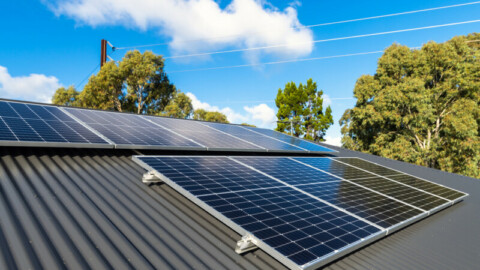Melbourne Water is applying ‘planned demand management’ activities to its water supply and sewerage system over the 2018 peak summer period to reduce demand on the city’s power network.
Melbourne Water can reduce the amount of power used at several sites; a practice known as demand management.
Demand management can occur as required, as long as core water supply and sewerage operations are not negatively impacted.
Some examples of demand management currently undertaken by Melbourne Water include rescheduling water pumping to reduce activity during peak times and using storage in the sewer network to reduce pumping.
General Manager Asset Management Services, Gerald Fitzgibbon, said Melbourne Water was seeking to reduce its demand wherever possible.
“So far we have identified around ten megawatts of demand that we can regularly reduce across our sites for periods of around four hours at a time,” Mr Fitzgibbon said.
“That’s enough to support around 8,300 homes on a very hot day. We also believe there are further potential savings we can work towards.
“Our sewage pumping operations do require a significant amount of power and we must ensure these vital services are always functioning properly, but we can always look for ways to operate them more efficiently for the benefit of the community, and our current demand reduction program is a great example of that.”
Demand management operations occur when Melbourne Water’s contracted energy provider advises of the need for such activity to occur due to significant market demand.
“Our Energy Team then liaises with operations to look at where we can reduce our power draw, and advises our provider of these sites. These sites then reduce their load during the nominated period. We review the data after the event to determine the scale of our reductions and consider opportunities for improvement,” Mr Fitzgibbon said.
“Our connected hydroelectric power plants, including five recently commissioned ‘mini hydros’ create more power than our water supply operations consume. We reschedule operation of these sites during demand management periods to increase export of electricity while reducing consumption at other water transfer sites.”
In addition, in the unlikely event of a statewide power outage, Melbourne Water also has the ability to continue to operate independently of the electricity network.
“Our water and sewage supply systems are both able to operate without power from the electricity grid, thanks to our network of backup generators, which are capable of operating independently.
“A number of these systems operate on biogas produced as a by-product of our sewage treatment processes. This also increases the resilience of Melbourne Water operations.”














